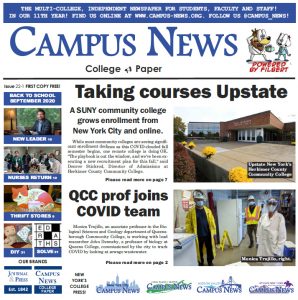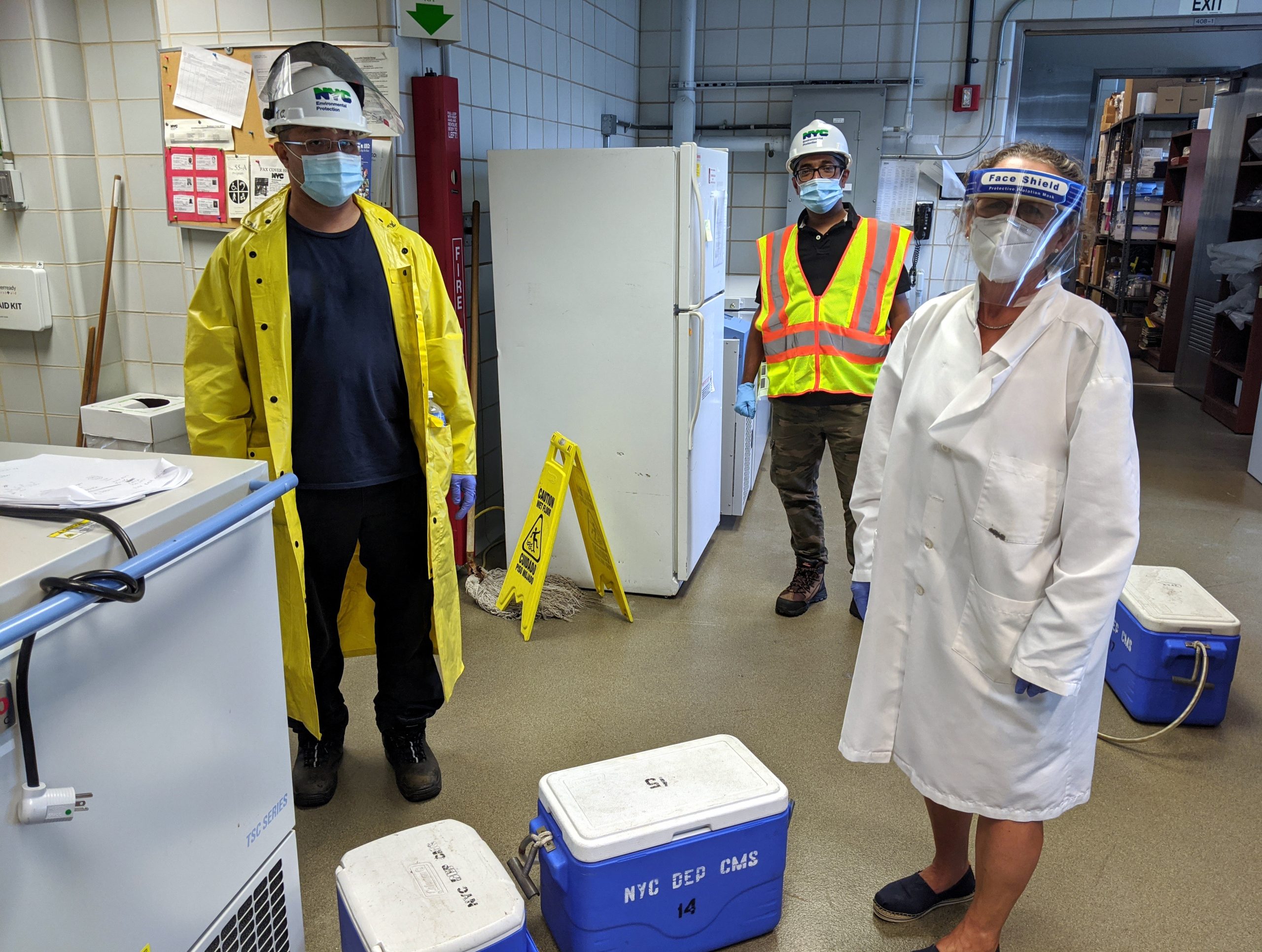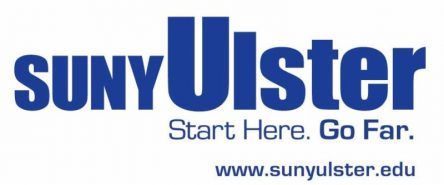By Darren Johnson
Campus News
Monica Trujillo (pictured, right), 60, an associate professor in the Biological Sciences and Geology department at Queensborough Community College, had mostly been teaching general microbiology the past decade and a half, “mainly health for nursing students,” she said, and then the COVID-19 pandemic hit this past spring.
Her classes moved online, and Trujillo – who also has been a research virologist – had her curiosity piqued by the Coronavirus. She started digging into papers being published about it. She made her classes all about Coronavirus, and she also saw how it affected people at a very personal level, as New York City was a hotbed for the disease.
“I was a traditional professor with very clear boundaries, but when the pandemic hit and my classes went online, the students talked about their problems, and all I could do was listen.”

Trujillo said that many students were going through very challenging times at home amid the pandemic.
“These kinds of things do not leave you untouched.”
She reached out to Queens College’s John Dennehy, a professor of biology who studies viruses, virus ecology and evolution, who, since May has been leading a team to test weekly samples from each of New York City’s 14 wastewater treatment plants in an effort by the city to assess the presence of COVID-19 more accurately than it does from testing and clinical data. Trujillo knew Dennehy, as she had often sent him transfer students.
With funding from the city’s Department of Environmental Protection (DEP), Dennehy’s lab developed a protocol for measuring the concentration of SARS-CoV-2, the virus that causes COVID-19, and extrapolating how pervasive the disease is in the communities that feed each wastewater plant.
“I’m very proud of what we’ve done and, except for John, the whole team is made up of immigrants. I myself am a Latina, and often society sees us (Latinos) differently. But here we are in lab coats, accomplishing something amazing. It puts us in a different light,” Trujillo said.
She noted that the CUNY system is much different than other university systems, in that the various colleges are relatively close together, and students from community colleges are often as good as their four-year counterparts. They may just be at a community college “because they’re poor,” she said, also noting that many immigrants get their start at a CUNY community college. The various colleges in the system can work together without pretense. “It’s the power of CUNY,” she said.
The pandemic has not only changed Trujillo’s teaching style, it has also put her back into the role of practitioner, lending her expertise to crucial work. She now shares the results of this work with her students, giving them a unique look at how science applies to their everyday lives.
“Why is this important? Everyone with the virus sheds it in their fecal matter. If we see an increase of the virus in our samples that means in 10 days to two weeks we will see an increase in COVID-19 cases emerging. That’s because most people are asymptomatic,” Trujillo said.
Dennehy added, via a press release: “Current efforts to characterize the genome of circulating Coronavirus are biased toward genomes obtained from critically ill patients. But if you want to test whether the virus is evolving and you’re only sampling from people who are hospitalized, you’re not getting the full breadth of the virus. The genetic diversity of Coronavirus in the wastewater gives you an unbiased and much more meaningful sample of a population.”
The testing is being conducted in Dennehy’s lab at Queens College, but he and his colleagues are training DEP staff to eventually take over what the department is calling “the CUNY protocol” at its lab in Newtown Creek, Queens.
“But what’s a normal amount (of virus in the wastewater)? We haven’t found a baseline yet because COVID-19 has been stable (here in New York), but we’ll also be able to see how the virus mutates,” Trujillo said.
“We’re working with 30 labs across the country to create a federal protocol. It’s exciting to see what you can do for the good of society,” she said.
She added that many colleges nationwide are testing their wastewater, to detect surges. “It’s easier because you don’t have to test everybody. Just test the sewage leaving the campus to see if a surge is coming.”
But at heart, she is also a teacher.
“I’m proud to say my legacy has been passed on,” Trujillo said, noting that many of her students have transferred to prestigious colleges and now are also doing advanced research. Her children have also gone on to notable STEM careers.
As for this current semester, Trujillo will teach three courses rather than her usual four. The college granted her some release time to continue her wastewater research with the CUNY team.
“It’s very challenging teaching a science lab class online. We’ll have to do something safe and cheap,” Trujillo said. “One thing I’ll ask them to do is make sourdough. They will learn about fermentation and the chemical processes. They can’t come on campus and do it, but at least they’ll bake bread.”






Facebook Comments